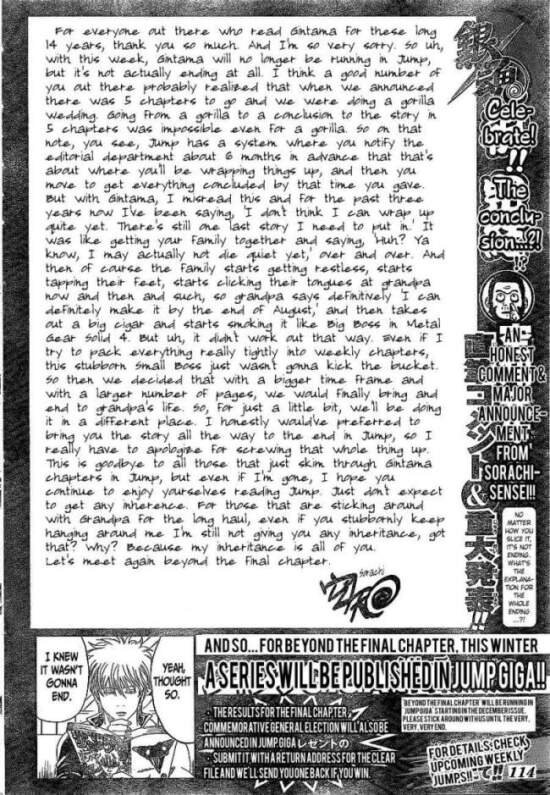Gintama
Shonen Jump, 2004-2018
Writer: Sorachi Hideaki
Japanese manga Gintama is an esoteric alternative reality story, written by Sorachi Hideaki since 2004. It has been extremely popular in Japan: over 55 million copies of the manga are in print, and it has been adapted into a broadcast television anime, two anime movies, two live action movies, and a live action webdrama.
For non-Japanese readers, there is a slight tinge of xenophobia to Gintama, which harkens back to the story of Perry’s Black Ships. On 8 July 1853, during what the Japanese call the Edo period, Commodore Matthew Perry of the United States Navy, commanding a small armed squadron of two steamers and two sailing vessels, sailed into Tokyo harbour. Representing the US Government, and engaging in classic gunboat diplomacy, Perry demanded that Japan end its 200 year old policy of isolationism and establish trade with the United States. The Japanese ruling shogunate refused. When Perry returned in February 1854 with a larger flotilla and threatened to shell Tokyo, the Japanese government reluctantly agreed to the American demands. Opening up Japan to trade hastened the fall of the shogunate and was one cause of the Meiji Restoration.
Gintama is set in the Edo period. In this story, Japan was not forced open by an American fleet but instead visited by a race of aliens known as the Amanto. The Amanto imposed more far-reaching prohibitions than Commodore Perry – a ban on swords and the end of the samurai. Resistance by the samurai was crushed. The protagonist of the story, Gintoki Sakata, a former member of the samurai resistance, regards fighting the aliens, their facile culture, and their high technology as a pointless exercise. The message about Western influence is hard to miss, but the story dilutes this by both being very funny and notorious for shout-outs to other Japanese manga such as Bleach, One Piece, and Dragon Ball Z.
A recent announcement that Gintama was to conclude in the 42nd issue of the 2018 Shonen Jump scheduled for release on 15 September. This meant the manga only had five chapters until conclusion. This was very big news indeed for fans of Gintama.

It evolves that imminent date of conclusion was incorrect. While Gintama won’t be in Weekly Jump, the manga is not ending. Mr Hideaki has now publicly explained that Shonen Jump requires manga creators to advise the Shonen Jump editorial department six months in advance that the story is to conclude.
A Twitter translation sets out Mr Hideaki’s note:

“For everyone out there who read Gintama for these long 14 years, thank you so much. And I’m so very sorry. So, uh, with this week, Gintama will no longer be running in Jump, but it’s not actually ending at all,” Sorachi wrote.
Gintama will instead carry on in another publication, Jump GIGA, starting this December.

